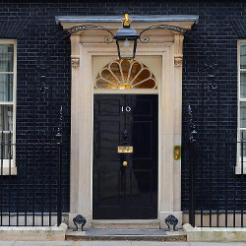More than 140 charity leaders have written to the Prime Minister calling on him to reverse the decision to add an anti-advocacy clause into grant agreements.
Matthew Hancock, minister for the Cabinet Office, made the announcement on Saturday and since then several people have come out against the measure, including a senior Conservative MP.
Today’s letter to David Cameron was co-ordinated by NCVO. It has been signed by Sir Stephen Bubb, chief executive of Acevo, Sir Stuart Etherington, chief executive of NCVO, John Low, chief executive of Charities Aid Foundation and Caron Bradshaw, chief executive of Charity Finance Group.
The letter highlights a number of examples where the new clause would be damaging.
“In October 2015, you announced a £5m grant fund for charities as part of the government’s counter-extremism strategy. As currently drafted, the new clause will undermine the ability of these charities to feed in valuable insights that may help government – those working on programmes receiving any grant funding would be prohibited from speaking to MPs,” it said.
It also draws attention to previous statements that Cameron has made regarding charities and the Compact and said that “the ability of voluntary organisations to campaign, regardless of any financial relationship, is a defining characteristic of this relationship”.
“Abandoning this protection is surely not the intended consequence of these proposals, as their impact runs contrary to the relationship you have sought to develop. As such, we urge you to reconsider them and work with the voluntary sector to find a constructive way forward,” the letter concluded.
Charlotte Ravenscroft, head of policy and public services, said that there had been “strong support” for the letter. She added that she hopes that after hearing from the sector the Prime Minister “will realise the impact that the plans could have”.
Each government department is expected to now begin consulting on how to implement the changes, and Ravenscroft called for these to be “formal public consultations so that we have the opportunity to discuss in detail with ministers what the impact is on their department”.
Clause 'is compatible with the Compact'
Yesterday in the House of Lords, Lord Harries of Pentregarth, a crossbench peer, asked how the government planned to implement the new policy.
Lord Bridges of Headley, Conservative peer and the Cabinet Office spokesman in the Lords, said that in “exceptional circumstances” ministers would be able to change or remove the clause and that each department is being “encouraged to engage with any grant recipients who are likely to be affected by the clause”.
He added that “charities will be able to provide advice and guidance to government if it is part of the work that they are being paid to do”.
“The government believe that the new clause is compatible with the Compact and does not in any way prevent grant recipients from campaigning and lobbying, using their other funds. It simply requires clarity on what the grant funding can be used for.”
He said that since the Department for Communities and Local Government started trialling the clause it has funded 56 organisations, including Shelter, which is currently lobbying politicians about its Power to Renters campaign. And that the department had not received any complaints.
Baroness Hayter of Kentish Town, Labour peer, criticised the timing of the announcement, which came shortly after the Charities Bill was finalised.
“Did the minister know about it on Tuesday when we completed it and would it not have been better to announce it then, when there could have been a debate on this important matter in Parliament, rather than issuing it by diktat?” she said.
Lord Bridges replied that the new clause was wider than just the charity sector as it applies to all organisations receiving grants.
Shadow minister for civil society, Anna Turley, said on Twitter that her request for an urgent debate in Parliament had been declined and that she is now seeking a Westminster Hall debate.








